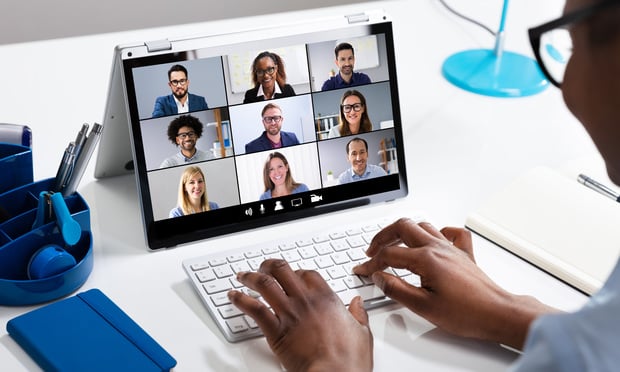Working during coronavirus times means videoconferencing. Lots of videoconferencing. And so, perhaps unsurprisingly, many in-house lawyers have warmed up to the idea of talking to a screen.
The Association of Corporate Counsel’s latest flash poll of 249 members showed that 32% of respondents were uncomfortable using videoconferencing before COVID-19 upended the world.
This content has been archived. It is available through our partners, LexisNexis® and Bloomberg Law.
To view this content, please continue to their sites.
Not a Lexis Subscriber?
Subscribe Now
Not a Bloomberg Law Subscriber?
Subscribe Now
LexisNexis® and Bloomberg Law are third party online distributors of the broad collection of current and archived versions of ALM's legal news publications. LexisNexis® and Bloomberg Law customers are able to access and use ALM's content, including content from the National Law Journal, The American Lawyer, Legaltech News, The New York Law Journal, and Corporate Counsel, as well as other sources of legal information.
For questions call 1-877-256-2472 or contact us at [email protected]

 (Photo: Andrey_Popov/Shutterstock.comvideoconference)
(Photo: Andrey_Popov/Shutterstock.comvideoconference)








